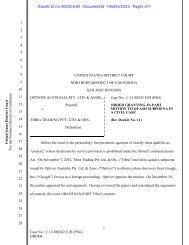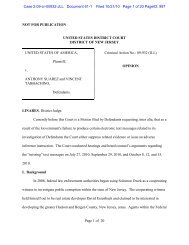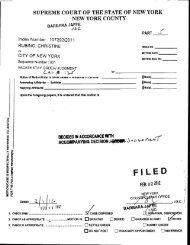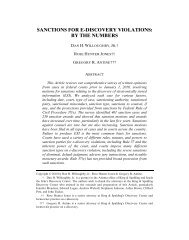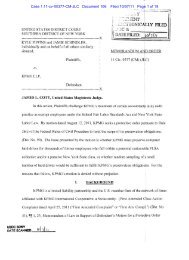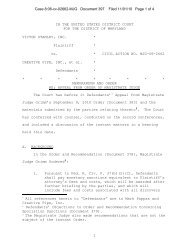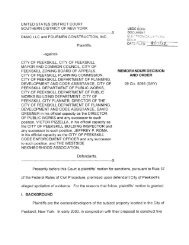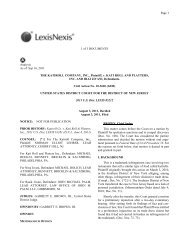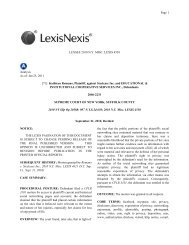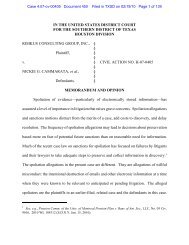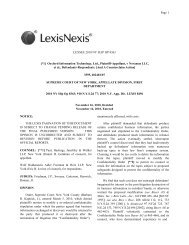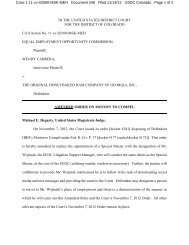DeGeer v. Gillis - E-Discovery Law Alert
DeGeer v. Gillis - E-Discovery Law Alert
DeGeer v. Gillis - E-Discovery Law Alert
You also want an ePaper? Increase the reach of your titles
YUMPU automatically turns print PDFs into web optimized ePapers that Google loves.
Case: 1:09-cv-06974 Document #: 157 Filed: 12/08/10 Page 30 of 32 PageID #:2030<br />
kind of collaboration and cooperation needed to manage e-discovery efficiently and with the least<br />
expense possible. The proper and most efficient course of action would have been agreement by<br />
Huron and Defendants as to search terms and data custodians prior to Huron’s electronic document<br />
retrieval. Selecting search terms and data custodians should be a matter of cooperation and<br />
transparency among parties and non-parties. If Defendants and Huron had disclosed proposed<br />
search terms and data custodians, they might have been able to resolve their differences without<br />
court intervention and avoided the substantial time and expense they spent briefing electronic<br />
discovery issues.<br />
Huron and Defendants share responsibility for this situation. Upon balancing the equities<br />
of these circumstances, Huron and Defendants should share responsibility for any future electronic<br />
production by Huron, with one limited exception. Huron and Defendants will be required to split the<br />
financial burden for the additional terms and data custodians that the Court is allowing searches of<br />
with the exception of the search of Holdren data. Huron should have to bear the cost itself of the<br />
search of Holdren data given Holdren’s policy of immediately deleting emails to avoid production<br />
during discovery. Despite the resources already spent by Huron, the Court does not find the<br />
financial burden on Huron to be significant in light of what has occurred here. This cost sharing will<br />
also encourage Defendants to carefully consider whether the future electronic searches they have<br />
proposed to undertake are proportionate to the likely benefit.<br />
In their reply in support of their motion to compel, Defendants request an award of fees and<br />
costs in connection with pursuing the instant motion to compel pursuant to Federal Rule of Civil<br />
Procedure 37(c)(1). That request is denied. Rule 37(c)(1) applies only to a party’s (not a nonparty’s)<br />
failure to disclose information or identify a witness under Rule 26(a) or (e) or admit under<br />
Rule 36. The remedy for failure to comply with a subpoena is to seek to hold the non-complying<br />
person in contempt of court. Rule 45(e) provides that a person who fails “without adequate excuse<br />
-30-



